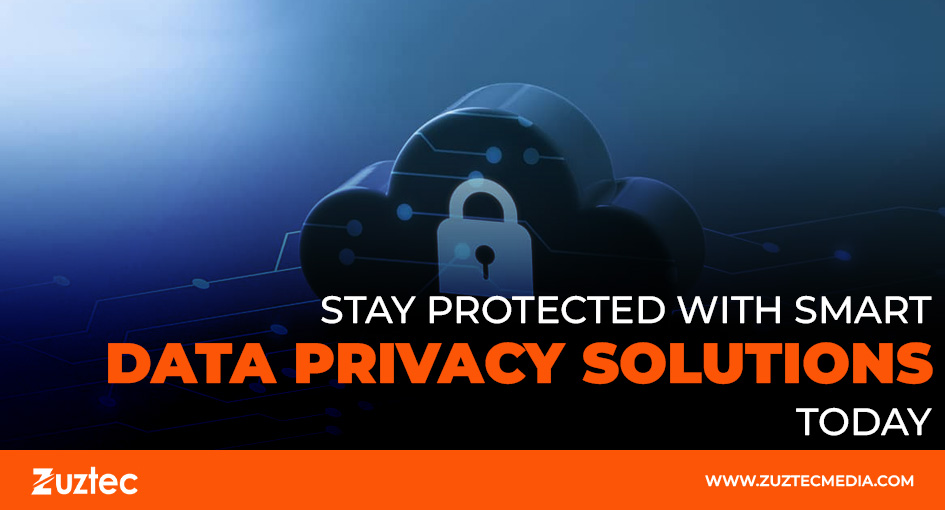
Stay Protected With Smart Data Privacy Solutions Today
In today’s digital-first world, data privacy is no longer a luxury—it’s a necessity. Whether you’re an individual or a business, protecting sensitive information from unauthorized access has become a critical priority. From social media platforms and e-commerce sites to healthcare systems and financial institutions, almost every online interaction involves the transfer and storage of personal data. This makes the need for robust data privacy solutions more urgent than ever.
Modern businesses collect vast amounts of data daily, ranging from user profiles to financial records. Without the right security measures in place, this information can be vulnerable to breaches, leaks, or misuse. A strong data privacy strategy not only protects customer data but also maintains trust, complies with global regulations, and prevents costly legal consequences. For individuals, securing personal information can prevent identity theft, fraud, and cyberbullying.
With threats evolving daily, staying secure demands more than just passwords and firewalls. Comprehensive data-privacy solutions must now include encryption, access control, cloud security, and employee training. For both businesses and users, being proactive is the best defense. Adopting the right privacy tools now can help reduce risks, boost customer confidence, and keep critical information out of the wrong hands.
Understanding Data Privacy Solutions And Their Importance
Data-privacy solutions are a set of tools and practices designed to protect digital information from unauthorized access, misuse, or exposure. These solutions are vital for businesses and individuals who deal with sensitive or confidential data such as names, addresses, financial details, and personal health records.
The core idea behind these solutions is to give users control over their data and prevent external threats from exploiting it. They typically include secure encryption, user authentication, data masking, access restriction, and compliance tracking. With the rising cases of cyberattacks and data breaches, having these protections in place has become essential.
When organizations implement data-privacy solutions, they show customers that they value their trust and privacy. This helps build stronger relationships, improves brand reputation, and reduces the chance of fines from failing to meet legal standards. On the other hand, individuals who use privacy tools like VPNs, two-factor authentication, and secure browsers can safeguard their online identities and financial information.
Ultimately, these solutions are not just about technology—they also involve policy-making, employee education, and ongoing monitoring. A successful privacy strategy balances ease of access with tight security, ensuring both usability and protection.
Key Features Of Effective Privacy Tools
Effective data privacy tools share several common features. One of the most important is data encryption, which converts sensitive information into unreadable code until it’s accessed by authorized users. Another vital component is user authentication. This feature ensures that only verified users can access certain data. Multi-factor authentication, which combines passwords with mobile codes or biometric scans, adds an extra layer of security.
Access control mechanisms are also crucial. These tools limit who can view or edit specific data within a company. By assigning roles and permissions, businesses reduce the risk of internal breaches or mistakes.
Audit logs and compliance tracking help organizations meet legal requirements by documenting how data is handled and stored. These records are useful during audits or investigations and demonstrate a company’s commitment to protecting privacy.
Challenges In Adopting Privacy Solutions
Despite the availability of advanced tools, many organizations struggle to adopt proper data privacy solutions. Some businesses, especially small ones, underestimate the risks or assume they are not targets. This leaves them exposed to attacks.
Budget constraints can also limit access to premium solutions. High-quality privacy software and expert consultants can be expensive, making it difficult for startups or nonprofits to secure their systems.
Another challenge is the complexity of regulations. Global businesses must navigate different laws in various regions. For example, a company operating in both the EU and the US must comply with GDPR and CCPA. Understanding and meeting each requirement demands time and resources.
Future Trends In Data Privacy
As technology continues to evolve, so do the tools and practices for data privacy. These technologies can analyze user behavior, detect unusual patterns, and stop breaches before they happen. AI-powered privacy tools are more responsive and adaptive than traditional systems.
Another rising trend is the adoption of privacy by design. This approach integrates data protection into every stage of a product’s development, rather than adding it afterward. Developers and engineers are now expected to build privacy features into software and platforms from the ground up.
However, with data breaches and privacy concerns on the rise, taking action to secure sensitive information is more important than ever. Businesses and individuals alike must explore effective data privacy solutions that align with their needs and responsibilities. From encryption and access control to legal compliance and training, every layer of protection counts.
In today’s digital world, relying on outdated systems or ignoring privacy risks can be costly. Smart organizations are already investing in advanced tools and proactive strategies to stay ahead of threats. By embracing strong data-privacy solutions, businesses can not only avoid legal troubles but also win the trust and loyalty of their customers.

